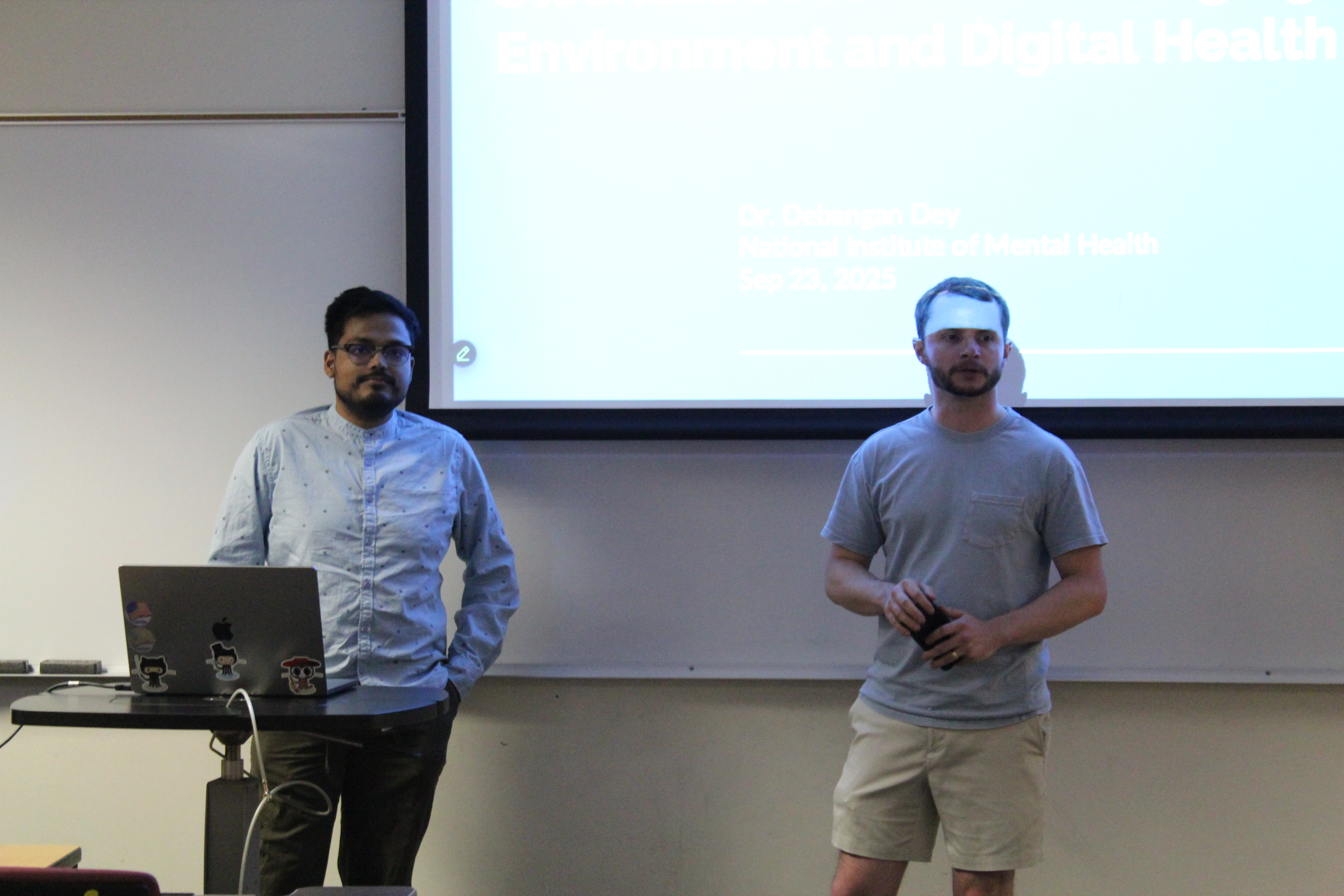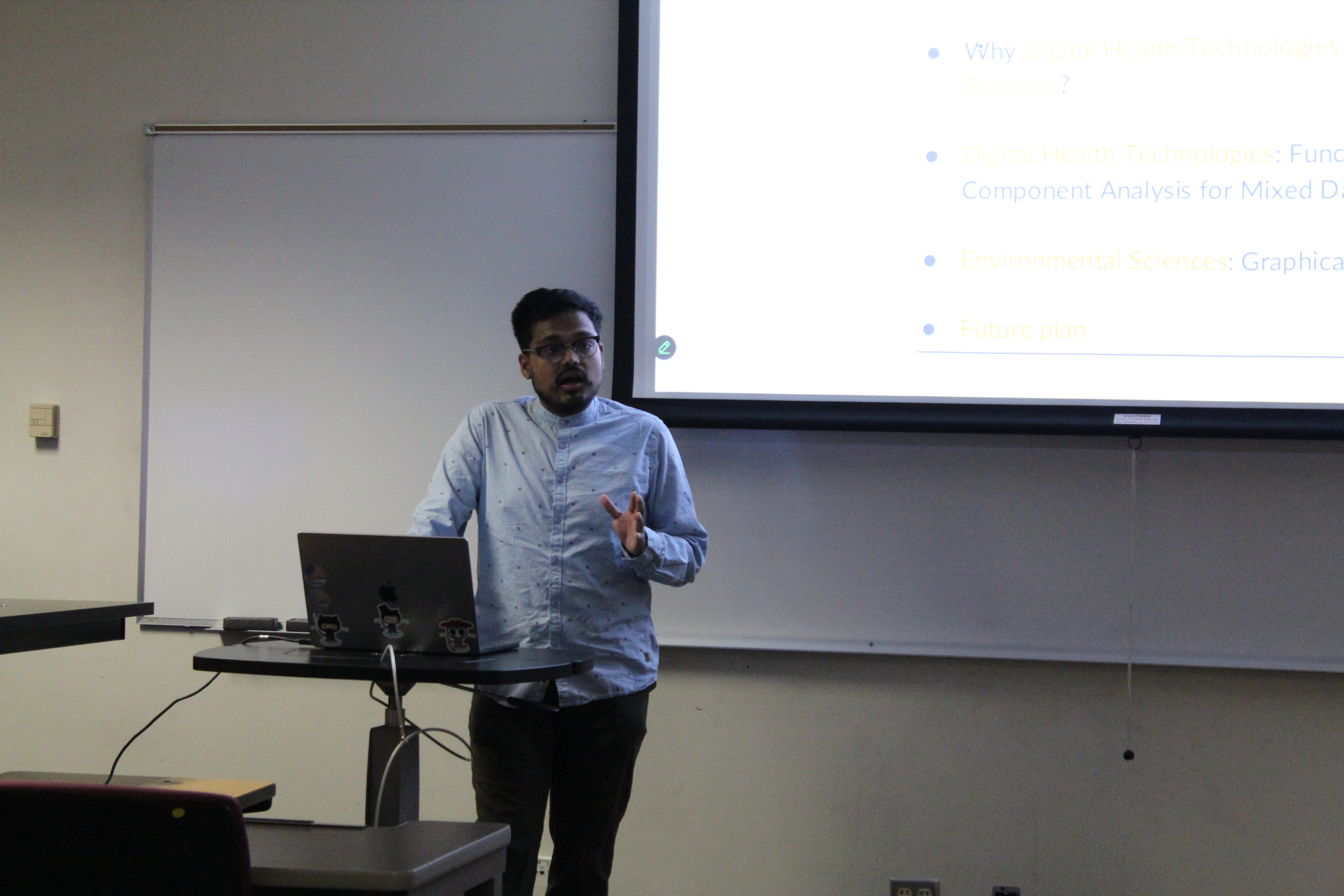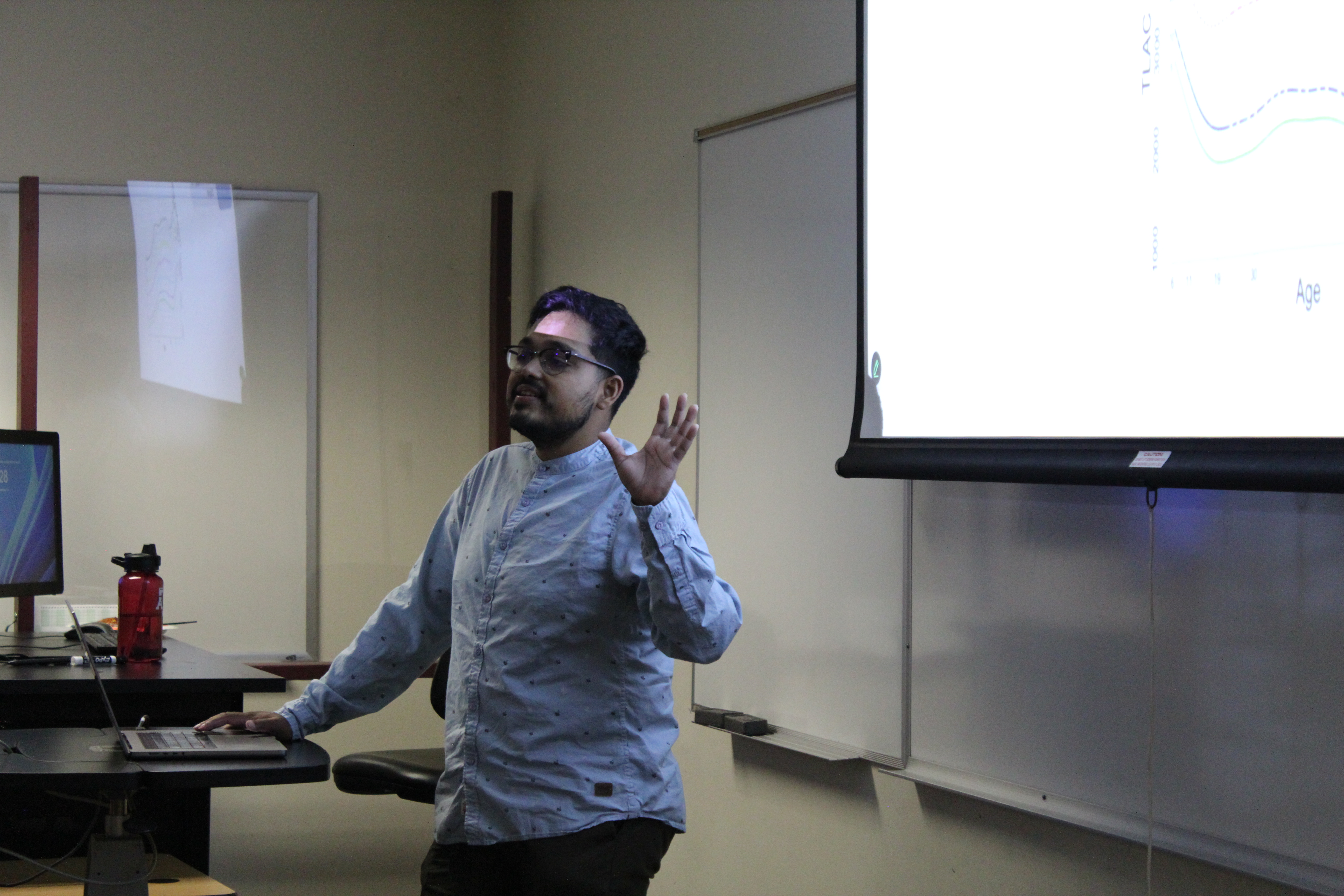Stat Cafe - Dr. Debangan Dey
Innovations in Multivariate Stochastic Processes: Bridging Environment and Digital Health
- Time: Tuesday 9/23/2025 from 11:10 AM to 12:25 PM
- Location: BLOC 448
Description
Wearable sensors, smartphones, and app-based ecological momentary assessment (EMA)—collectively referred to as digital health technologies (DHTs)—are revolutionizing how we monitor mental and physical health in real-time. At the same time, environmental sciences collect rich geospatial data to study environmental exposures affecting health outcomes. Using passively collected location data, it is possible to augment DHT data with environmental science by linking individuals’ locations to contextual environmental exposures, such as air pollution and temperature. However, analyzing these high-dimensional, multimodal longitudinal data requires statistical methods that accommodate mixed data types and dependencies. This talk presents methodological advancements addressing these challenges. I introduce a Functional Principal Component Analysis (FPCA) framework for mixed-type functional data—including continuous (e.g., physical activity), truncated (e.g., pain levels), ordinal (e.g., mood states), and binary (e.g., life events)—using a latent semiparametric Gaussian copula process to model temporal dependence. Applying this method to EMA and actigraphy data from the National Institute of Mental Health Family Study, we identify multivariate mood and physical activity phenotypes that distinguish mood disorder subtypes, including Major Depressive Disorder and Bipolar Disorder Types 1 and 2. Looking forward, I will extend these ideas to dependent functional data in family studies, individualized digital phenotyping, and methods addressing spatial confounding to assess whether physical activity mediates environmental effects on mood, leveraging large-scale datasets from the 12 sites in the Motor Activity Research Consortium for Health (mMARCH).
Our Speaker
Dr. Debangan Dey is an Assistant Professor in the Department of Statistics at Texas A&M University. He received his PhD in Biostatistics from the Johns Hopkins Bloomberg School of Public Health in 2022 and completed a postdoctoral fellowship at the National Institutes of Health. His research focuses on building theory and methods for multivariate stochastic processes as a unifying AI framework to analyze intensive, multilevel, multimodal, longitudinal data collected across space and time. This type of data arises in studies employing Digital Health Technologies, such as smartphone apps and smartwatches, with contextual spatial information like weather, light, and greenspace etc. through location tracking. His work aims to uncover how mental health, sleep, physical activity, and the environment interact and evolve over time.
Gallery





